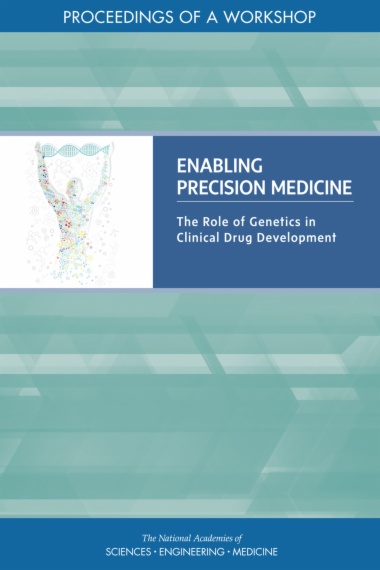

Those involved in the drug development process face challenges of efficiency and overall sustainability due in part to high research costs, lengthy development timelines, and late-stage drug failures. Novel clinical trial designs that enroll participants based on their genetics represent a potentially disruptive change that could improve patient outcomes, reduce costs associated with drug development, and further realize the goals of precision medicine.
On March 8, 2017, the Forum on Drug Discovery, Development, and Translation and the Roundtable on Genomics and Precision Health of the National Academies of Sciences, Engineering, and Medicine hosted the workshop Enabling Precision Medicine: The Role of Genetics in Clinical Drug Development. Participants examined successes, challenges, and possible best practices for effectively using genetic information in the design and implementation of clinical trials to support the development of precision medicines, including exploring the potential advantages and disadvantages of such trials across a variety of disease areas. This publication summarizes the presentations and discussions from the workshop.